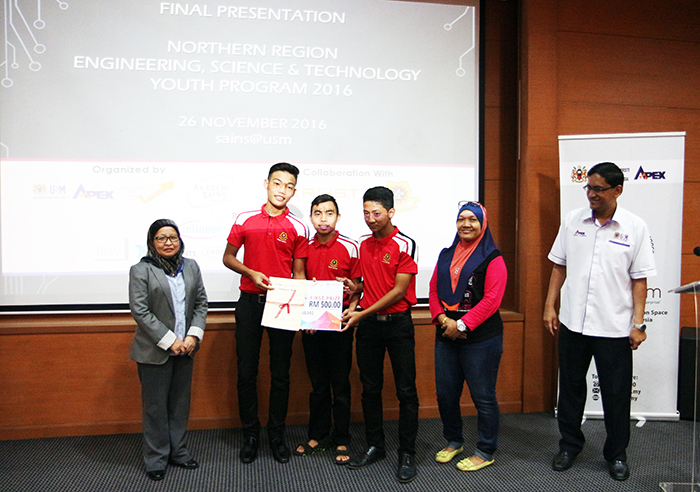ACCURACY, FLUENCY AND ARTISTRY – MAIN PRINCIPLES IN DOING TRANSLATION

PENANG, April 2016 - Accuracy, fluency and artistry were the three main principles in doing translation that were frequently emphasised by the foremost translator from China, the late Yan Fu, gathered from the book entitled “The Principles of Translation Evolution and Ethics and Other Essays” which touches on the process of doing translation.
The late Yan Fu had also translated works on politics, economy and the Western physical sciences in a systematic manner.
He had translated and published seven important literary works from the West, among them were the "Spirit of Law" written by C. D. S Montesquien and the "Study of Sociology" written by H. Spencer, which have enlightened the people of China in areas of science, economy, politics, law and sociology.

This was narrated by a young and experienced translator, Fu Cong Cong or also known by his Islamic name, Johan Ikhwan during his talk on Translation and Interpretation entitled “Liku-liku Penterjemahan Manuskrip Sulalat al Salatin ke dalam Bahasa Cina” (Challenges in Translating the Sulalat al Salatin Manuscript into the Chinese Language) held at the Dewan Kuliah D, Universiti Sains Malaysia (USM), here recently.
Fu Cong Cong, who also lectures at the Department of Malay Studies, Beijing Foreign Studies University has looked up to Yan Fu as a source of inspiration in doing his translation work, especially in the aspects of improving the fluency, which he considers as an important principle in the translation process to assist the reader in understanding the translated work better.
Fu Cong Cong said that, the first principle in translation is accuracy, or as in Chinese is also referred to as ‘reliability’. It refers to the need to maintain the holistic meaning from the source text, without any addition or deletion and having the accuracy element.
“A simple classic Malay literary work that has ‘emotions’ attached to it should be translated to offer the readers the opportunity to visualise the situations which had occurred during that particular time.
“Being artistic is a principle that translators find hard to adhere to, because they would commonly use their own creative ideas through idioms and proverbs in Chinese, as the original writer might have not intended to use any figurative language and at the same time, to maintain the principle of accuracy,” he explained.
He said that, the late Yan Fu regarded translators as lacking in a wide range of knowledge in order to translate a book from Malay to Chinese or into another foreign language, due to the emphasis on fluency and accuracy. Apart from that, translation would usually be considered as needing only limited knowledge in a specific field.
“My focus has been on translating classic Malay literary works, as doing translation in other areas requires more effort and yet would yield less accuracy.”
“Common terms in Malay History which were translated into the Chinese language would be standardised, to allow the group members translating the work to use the terms in a similar manner and would be understood by the readers.
“Amassing the manpower in doing translation from classic Malay to Chinese is a challenge in the field, as there are too few students who are interested in pursuing further studies after they have completed their undergraduate degree, which has resulted in the difficulty in finding translators in China,” he added.
Translation: Mazlan Hanafi Basharudin
Text: New Gaik Siew (USM Internship Student)
- Created on .
- Hits: 1735
